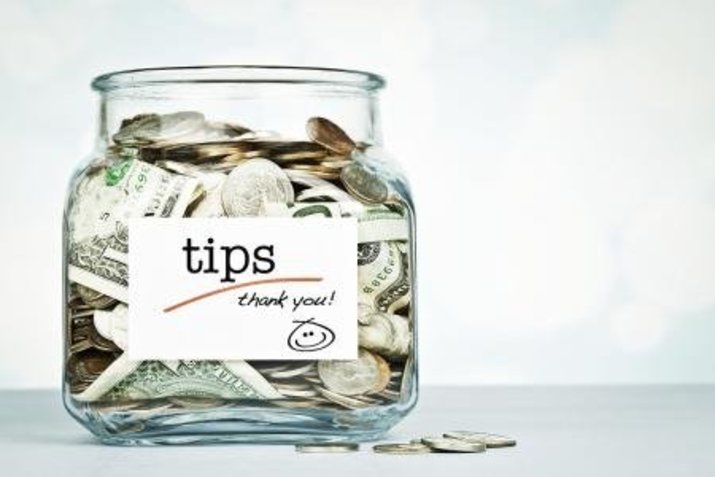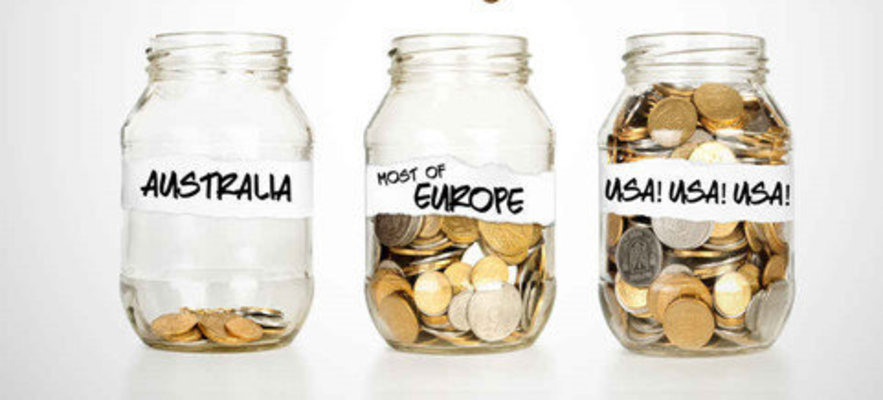When travelling to other countries for the first time, we’ve all had that dilemma: to tip or not to tip? And if yes, who and how much should I tip?
While in some places tipping is customary and required, in some other cultures it’s unheard of and even considered as an insult.
"Tip” is short for “To Insure Promptness"
This practice began in Tudor England in the 17th century and thrived in North America. In ancient China, we also had this custom called shangqian (赏钱). Nowadays tipping rules vary by country and by situation, and they can be a confusing and stressful part of our time abroad. So, what’s the tipping etiquette? Here is a brief guide to tipping around the world.

China - Generally speaking, tipping in China is not common at all. However, being a growing travel destination, tipping has become more popular in high end hotels and restaurants, and to reward tour guides and private drivers. For more info regarding etiquette in China, please check our guide to the Do’s & Don’ts.
Thailand - In Thailand tipping is not expected, but always highly appreciated to reward great service. In hotels, usually 20 to 50 baht for the bellman and 20 baht for the cleaner in a "gratuity envelope" or under the pillow. Excellent tour guides can make up to USD 20 a day. Masseurs usually get from 20 to 100 baht, but keep in mind that coins are considered very disrespectful since they're usually meant for beggars. The exception is restaurants, where it’s customary to leave behind any loose change in coins. In high end restaurants, you should tip at least 10% if you’re satisfied with the service, but only if no service charge is included in the bill.
The Philippines - The Philippines is traditionally a non tipping country, but this practice is becoming more common thanks to the tourism industry. Hotels in the Philippines include a 10% service charge to the final cost, but it’s still common practice to give the bellman USD 1 tip. When leaving tips for housekeepers, make sure to put the money in an envelope that says "TIPS", otherwise it won’t be taken. Restaurants normally add a 10% service charge, so check your bill! If the service charge is not included, you might want to give a 10% tip to the staff.
Malaysia - In Malaysian hotels a USD 1 tip is normally expected for the porter. In restaurants a 10% service charge is already included in your bill, so there's no need to tip! However, locals usually leave change behind.
India - It’s customary to tip service providers at hotels: INR 20-50 per bag to bellmen and cleaners. Restaurants usually include a mandatory service charge in the check, if not it’s suggested to tip 10% of the total. Taxi drivers, hairdressers and masseurs don’t expect tipping, but it’s always a good idea to round up the amount. Tour guides should get INR 100 to INR 300, depending on the quality of the service. Many travellers in India experienced “forced tipping”, so don’t allow anyone to grab your suitcase if you don’t want to tip them!
Japan, South Korea and Singapore - Tipping in these countries is not mandatory and, in Singapore, even discouraged. If your tip gets refused, don’t be offended!

In Europe, the tipping system is quite similar throughout the whole continent. In hotels, € 1 to € 2 to the bellman and the cleaner is usually considered appropriate.
United Kingdom - Although a 12,5% service charge is usually included, it’s customary to leave 10-15% of the bill when eating in restaurants, unless the service was bad. For taxi drivers, the custom is to leave your change behind as tips.
Germany - Tipping and service charge are usually included in the menu price, yet a 10% tip is considered to be a reasonable amount to reward good service in restaurants. For small orders, a 5% tip is also accepted, as well as for bartenders and taxi drivers
Italy - Tipping in Italy is not customary, since most times service charge is already included in your bill. It’s common though to leave small change behind in a small jar usually next to the cashier.
Portugal and Spain - Although service charge is usually not mandatory, tipping is still not common outside of high end tourist hotels and restaurants; plus giving small change as tips is an impolite behavior.
North America - The United States, Canada and Mexico share almost the same tipping culture: 10%-20% for wait staff, 15% for taxi drivers, USD 1 or 2 for baggage service, USD 1 or 2 for housekeeping, etc. Tipping is very important in North America, where most workers in the service and hospitality industries mostly rely on tips to round up their salaries.
Australia and New Zealand - There are no strict rules about tipping in Australia and New Zealand, where salaries are quite high, and maybe for this reason Aussies are generally known abroad as poor tippers.
Interested in more travel related information, especially about Yunnan and China? Follow us on Facebook, Instagram and Twitter for the latest updates and subscribe to our monthly newsletter! For any further question, please don't hesitate to get in touch with us!
- 487 reads
- Like this







